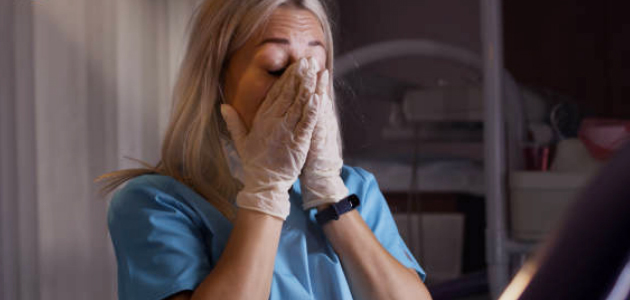Considering the Mental Health of Dentists During the Covid-19 Pandemic
Dentists, you’re not alone - and help is available to you

Through the long and taxing Covid-19 pandemic, the mental health of frontline healthcare workers has undeniably been heavily impacted - and this includes dentists providing urgent and emergency care services.
As all dentists know, dentistry can be a highly stressful profession, pandemic aside - with dentists’ mental health actually shown to be poorer than that of the general population. In fact, a study involving over 3500 dentists uncovered that 38 percent of them described themselves as always or frequently feeling worried or anxious.
Furthermore, a comprehensive study of dentists from the UK pinpointed several features of dental practices that were thought to contribute to higher levels of stress and other mental health problems for dental workers.
These stressors included busy work conditions where there is no room for error as a trusted medical professional, a non-social work culture resulting in loneliness, and regulatory changes leading to constant fear and higher emotional distress.
How the Covid-19 pandemic exacerbated an already stressful profession
Dentists everywhere have experienced the great emotional and financial stress of the pandemic - from the impact of long and wavering practice shutdowns/inconsistent rules and regulations and necessary isolations, all while having to manage their own health risk with extra precaution.
And when compared to non-essential professions, dentists in particular faced a persistent fear of Covid-19 exposure as the virus is transmitted most easily through respiratory particles - so of course, the nature of the profession and working closely in mouths posed an extremely high risk.
In addition to this heightened fear, the implementation of strict PPE and IPAC protocols have proven to pose both operational and financial challenges. Then, throw in the highly inconsistent approach to safety regulations in Ontario that dentists were required to keep up with and follow diligently (the CDHO even released a statement acknowledging its own struggle to keep up with/ understand RCDSO changes on June 1, 2020) - and more fear and anxiety over law-following and patient safety was bound to arise.
With these mental health challenges comes a breaking point
The many mental and emotional challenges that dentists have had to endure during the pandemic have, in many cases, led to burnout. Burnout not only impacts a dentist’s wellbeing on a personal level, but also on a professional level - which can extend to quality of treatment and patient safety. A higher degree of burnout leads to higher instances of error, complaints, and ultimately a negative vicious cycle that no dentist wants or deserves to be in.
How can troubled dentists move forward?
Dentists experiencing mental health issues like anxiety or depression, or burnout, should seek help from a qualified mental health professional. Other mental health-supporting practices include good sleep, practicing mindfulness and meditation, exercise and healthy diet. Furthermore, should a dentist ever find his or herself in a challenging practice situation, then they should seek prompt assistance from a lawyer or accountant.
Dentists are a highly valuable asset to our lives, but they must protect themselves first and foremost. Mental health and dental health are equally as important.
Our Teeth First Dental Network supports the mental health and wellbeing of our valued dentists. We appreciate you, and while it may feel like it at times, you are not alone.